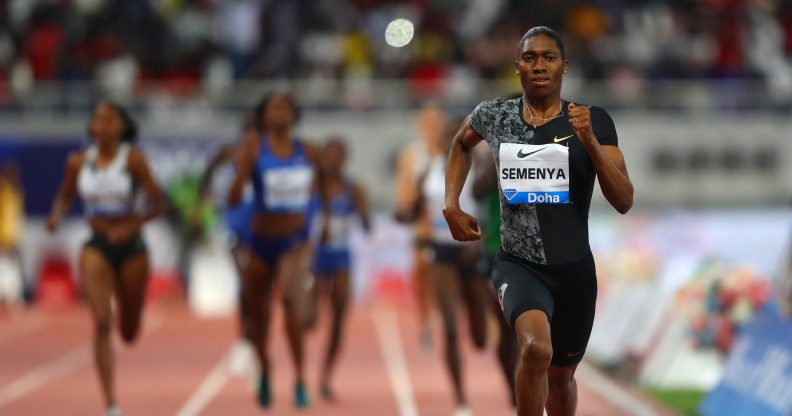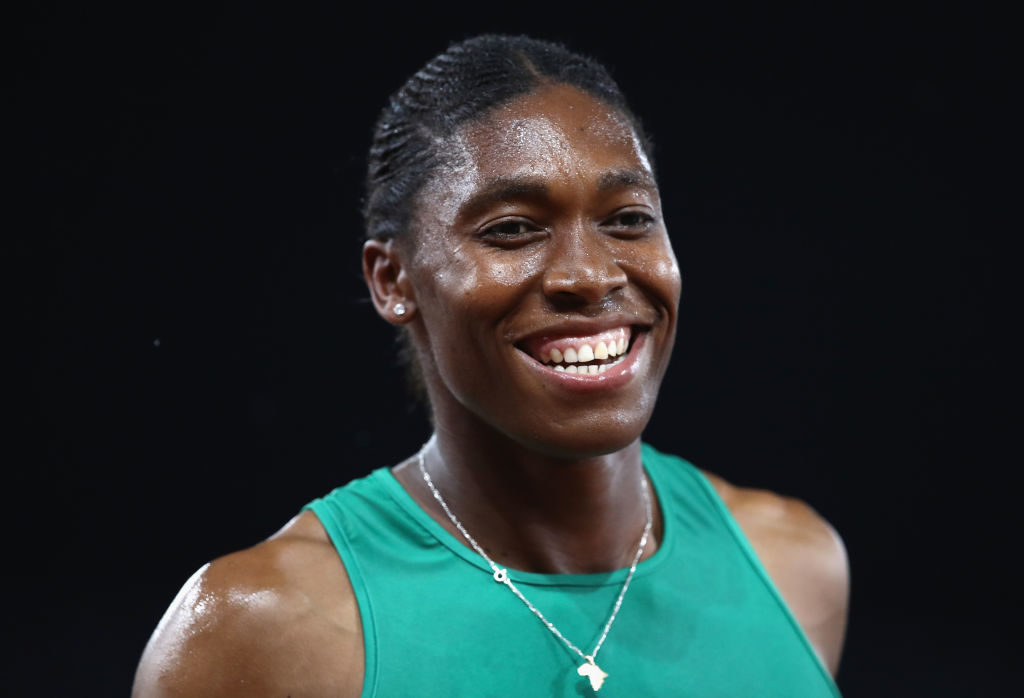Testosterone levels allowed for female trans athletes competing in elite sports cut in half

Caster Semenya of South Africa races to the finish line in Doha, Qatar. (Francois Nel/Getty)
Trans female athletes are to be forced to lower their testosterone levels or else not be able to compete in elite sports, an athletics governing body has ruled.
Competitors must now manage their levels of the natural hormone below five nanomoles per litre of blood in order to compete in the female category, the International Association of Athletics Federations (IAAF) has said, according to BBC Sports.
The revised regulations are far tighter than the IAAF’s previous limit, which was 10 nanomoles, and is the same as that which applies to athletes with differences of sexual development (DSD), such as Caster Semenya.
Semenya leapt into headlines after she challenged the IAAF’s rules that would make athletes with DSD take testosterone-reducing medication to compete in track events from 400 metres to the mile.
If she chose not to take the medication, her options would be limited to taking part in a different distance, entering in the male categories or not competing altogether.
The case plunged her career into question all because she has elevated testosterone levels.
As a result, the middle-distance runner fought a lengthy court battle to counter the regulations, but lost earlier this year.
She emerged out of the case as a lightning rod for criticism as anti-trans activists used the ruling to bolster the view that trans women should not be able to participate in certain sporting events.
What are the new regulations on trans female athletes?
The rules have been relaxed, in part.
Trans women no longer have to be legally recognised as their gender, but must now provide a signed declaration that their gender identity is female.
Moreover, competitors must demonstrate that their testosterone levels in their serum has been less than five nanomoles continuously for a period of at least 12 months prior to being declared eligible, according to an IAAF statement.
And the athlete must keep below the level consistently to maintain eligibility to compete in the female category.
These new rules come after the IAAF Council met in Doha, the capital of Qatar, during the IAAF World Athletics Championships.

(Cameron Spencer/Getty)
Furthermore, the debate over trans women in sports has clouded the 2020 Tokyo Olympic Games as the International Olympic Committee struggle to agree over the “tricky political and emotive issue”.
Scientists involved in the decision were expected to recommend halving the permitted testosterone levels for trans women competing in elite sport, opening up the field to more trans-inclusive races.
But sources confirmed to The Guardian that the IOC have pinned discussions because the subject is so divisive, and consensus is not likely before the games begin next year.

